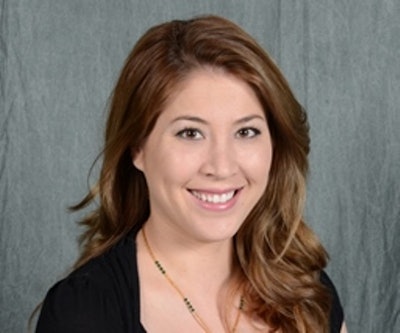 William Peace University’s Associate Professor of Communication Lynn Owens.
William Peace University’s Associate Professor of Communication Lynn Owens.College is supposed to prepare students for their future careers, but half of America’s employers believe that today’s graduates are unprepared for the labor force. For this week’s installment of “Diverse Conversations,” I spoke with Dr. Lynn C. Owens, Associate Professor of Communication at William Peace University in Raleigh, NC, about her research on the intersection of higher education and the labor force.
Please provide me with a little background information on your study.
Since 2008, I (along with my co-author, Professor Deb Wenger of the University of Mississippi) have been doing a content analysis of journalism job postings to discover what skills and attributes journalism employers are looking for in their new hires. Our findings have been published in several journals and books, including Journalism and Mass Communication Educator, Electronic News, and The Future of Journalism Education, Training and Employment. Our most recent paper won third place at the World Journalism Congress this past summer.
What findings did the study reveal?
Our findings show that employers want new hires that can do a little bit of everything. In the past several years, we have seen a shift from employers demanding a focused skill set to a much broader one. For example, five years ago, reporter job postings may have sought someone who could write, conduct interviews and generate story ideas. Now, they are calling for someone who can do all those things, plus shoot video, edit, write for the web and market stories via social media.
What did your findings reveal about the job market for all industries?
In preparation of our own research, we looked at studies in other industries as well. Some studies say half of employers think college graduates are unprepared to enter the workforce. What was also interesting was that, across industries, some of the same skills are in demand. Writing, critical thinking and problem-solving skills are in high demand. In addition, the fact that employers want more out of job candidates can translate to every industry, not just journalism.
What do your findings mean for educators?
Our findings suggest that educators need to look at their curricula and make sure that they are providing their students with the skills necessary to land a job when they graduate. What worked even five years ago may not necessarily work now. In the communication department at William Peace University, we added several multimedia and social media requirements to our major, and it’s amazing to see how many of our recent graduates have been able to get jobs thanks to having these skills listed on their resumes.
What do your findings mean for students?
Students should always be collecting strong examples of their college work to put in a portfolio to show future employers. Also, students should try to complete at least one internship during their college years. Internships are fantastic supplements to your higher education. What better way of tapping into the skills required in the “real world”? All students at William Peace University, regardless of their major, are required to do an internship, and I strongly believe that is why more than 90 percent of our grads get a job or get accepted to grad school within one year of graduation. Internships make a huge difference.
What do your findings indicate about the makeup of today’s student?
Students trust that their educators know what it is going to take to prepare them for a job after graduation. So, educators really have a responsibility to keep up with what is happening in their respective fields and update their curricula, respectively.
Why do you think employers’ needs have changed?
For one, I believe the economic downturn really impacted employers’ needs. Employers needed their employees to take on more roles due to smaller budgets. This was certainly the case among journalism employers. Also, technology has changed the way people get their information. We are a digital society now, and this impacts most job sectors in some way. We are seeing employers requiring more tech-savvy hires.
Where do you think this will leave us in 5 to 10 years? What new skills do you see gaining importance?
It is hard to say where we will be in 5 to 10 years. I think companies will still demand employees with diverse skill sets. Those skills will depend on changing technology.
What does your study reveal about higher education in general and the responsibility educators must take on to prepare students for the professional realm?
Students invest a lot of time and money in their education, and it is our responsibility as educators to teach them the skills necessary to not only land a job but also to succeed in the workforce. As educators, we have to be flexible to changing our methods and teachings to reflect an ever-changing workforce.
Why is it so important to re-evaluate and discover employers’ needs as educators?
Our research has shown that employers’ needs have changed in a very short period of time. Particularly given the speed at which technology is advancing, employers’ needs also change. So, educators cannot stay too comfortable in their curriculum. Many core courses, such as writing, will be relatively unchanged. But other skills, such as multimedia skills, are changing rapidly.
Anything else you would like to share?
If you have any other questions, feel free to contact me. Thanks for this opportunity.
This concludes my interview with Dr. Owens. I would like to thank her for taking time out of her busy schedule to speak with us.


















